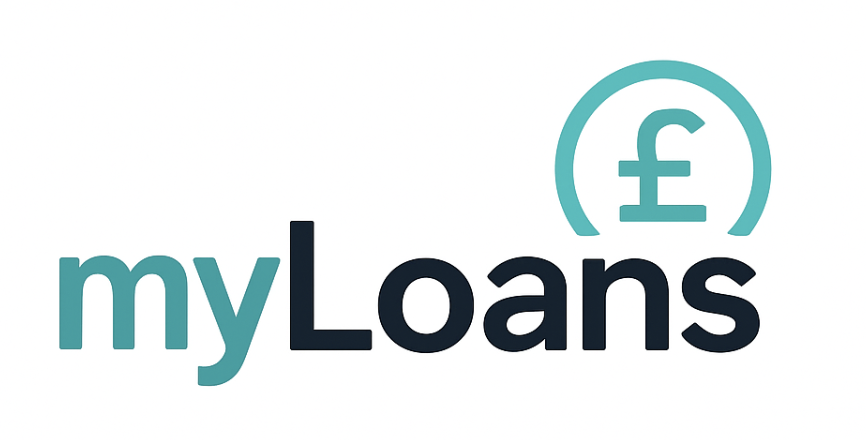Legal Regulations for Money Lenders UK
In the UK, the money lending industry is heavily regulated to protect consumers and ensure fair practices. Whether you’re considering borrowing from a money lender or you’re a lender yourself, understanding these regulations is crucial. In this article, we’ll explore the key legal requirements for money lenders in the UK and how these rules impact both lenders and borrowers. The regulatory framework ensures a balanced marketplace where consumers are protected from exploitative practices while lenders are held to high standards of accountability and transparency.
The Financial Conduct Authority (FCA) is the primary regulatory body overseeing money lenders in the UK. The FCA’s primary goal is to maintain the integrity of the financial markets and protect consumers from unfair practices. Its comprehensive approach ensures that the financial sector operates in a way that benefits both consumers and the broader economy.
All money lenders operating in the UK must be authorized by the FCA. This ensures that lenders meet specific standards of practice and are equipped to operate responsibly. The authorization process involves rigorous checks, including the financial stability of the lender and their ability to adhere to regulatory guidelines. Unauthorized lending is illegal and can result in severe penalties, including fines and imprisonment. For borrowers, checking a lender’s FCA authorization status is an essential step before entering into any loan agreement. This verification process can usually be done easily through the FCA’s online register, providing peace of mind and protection against fraudulent lenders.
The FCA sets strict guidelines on how money lenders should conduct their business. This includes fair treatment of customers, transparent communication, and responsible lending practices. Lenders are required to implement systems and controls to monitor their compliance with these standards. They must provide clear information about loan terms, interest rates, and any potential fees, ensuring that borrowers are fully informed. This transparency helps borrowers make informed decisions and reduces the risk of financial distress. Lenders found in breach of these guidelines may face sanctions, ranging from fines to revocation of their authorization.
The FCA is also tasked with implementing consumer protection measures. These measures include safeguarding vulnerable customers, ensuring that they are not targeted with high-cost loans or misleading information. The FCA conducts regular reviews and audits of lending practices to ensure compliance. It also provides educational resources to help consumers understand their rights and responsibilities when borrowing. The FCA’s focus on consumer protection extends to complaint resolution, offering a structured process for addressing grievances and ensuring fair outcomes for borrowers.
Another critical piece of legislation governing money lenders in the UK is the Consumer Credit Act. This law provides a framework for consumer credit agreements and outlines the rights and responsibilities of both lenders and borrowers. It is designed to foster transparency and fairness in the credit industry.
- Disclosure Requirements: Lenders must provide borrowers with a clear written agreement detailing the loan terms, including the interest rate, repayment schedule, and any additional charges. This requirement ensures that borrowers are fully aware of their commitments and can make informed decisions. The disclosure must be presented in a way that is easy to understand, avoiding technical jargon or complex language.
- Cooling-Off Period: Borrowers have a 14-day cooling-off period during which they can cancel the loan agreement without incurring any penalties. This provision offers a vital safeguard, allowing borrowers time to reconsider their decision and seek alternative financing if necessary. It reflects the Act’s emphasis on consumer rights and the importance of informed consent.
- Interest Rate Caps: The Act imposes limits on the interest rates that can be charged, helping to prevent predatory lending practices. These caps are designed to protect borrowers from exorbitant costs and ensure that loans remain affordable. The interest rate caps are regularly reviewed to reflect changes in the economic environment and maintain the balance between consumer protection and market viability.
Understanding these provisions can help borrowers know their rights and ensure they are not taken advantage of by unscrupulous lenders. Being informed empowers consumers to challenge unfair practices and seek redress when necessary.
The UK money lending market is diverse, with various types of lenders catering to different needs. Each type of lender offers unique products and services, making it important for consumers to understand their options.
These institutions offer a range of financial products, including personal loans and mortgages. They are typically regulated more stringently and offer lower interest rates compared to other types of lenders. Banks and building societies often have a long-standing reputation for stability and reliability, making them a preferred choice for many borrowers. They also provide additional financial services, such as savings accounts and investment products, offering a comprehensive financial solution.
Payday lenders offer short-term loans with high-interest rates designed to tide borrowers over until their next paycheck. These lenders are subject to specific regulations to protect consumers from excessive interest rates and fees. Despite their convenience, payday loans can quickly become expensive, leading to a cycle of debt if not managed carefully. Borrowers are advised to consider alternative options and only use payday loans as a last resort.
P2P lending platforms connect individual borrowers with investors willing to fund their loans. While P2P lending can offer competitive rates, it’s essential to ensure that the platform is FCA-authorized. P2P lending provides flexibility and may be suitable for those who struggle to secure loans through traditional banks. However, borrowers should be aware of the potential risks, such as the lack of deposit protection and the possibility of variable interest rates.
Loan shops and pawnbrokers offer secured loans using the borrower’s assets as collateral. These lenders can be convenient but often charge higher interest rates, so it’s important to understand the terms fully. Borrowers should carefully consider the value of their collateral and the potential consequences of defaulting on the loan. Pawnbrokers may provide a viable option for those needing quick access to cash, but the risk of losing valuable assets must be weighed against the benefits.
Borrowing money can be a helpful financial tool, but it’s important to be aware of the potential challenges and considerations involved. Being informed and prepared can help mitigate risks and ensure a positive borrowing experience.
Before taking out a loan, make sure you fully understand the terms and conditions. Pay close attention to the interest rate, repayment schedule, and any additional fees. These factors can significantly impact the total cost of the loan and your ability to repay it comfortably. If anything is unclear, don’t hesitate to ask the lender for clarification. It’s also advisable to seek independent financial advice to ensure that the loan aligns with your financial goals.
One of the key responsibilities of borrowers is to assess whether they can afford the loan repayments. This involves evaluating your income, expenses, and any existing debts to determine your financial capacity. Borrowing beyond your means can lead to financial difficulties and negatively impact your credit score. It’s essential to have a realistic budget and consider potential changes in circumstances, such as job loss or unexpected expenses.
Not all money lenders are created equal. Take the time to compare different lenders and their offerings. This involves researching interest rates, fees, and customer reviews to identify reputable lenders with competitive terms. Look for reviews, such as “your loan today reviews,” to gauge other borrowers’ experiences and choose a reputable lender. Comparing lenders can help you find the best deal and avoid costly mistakes.
Be vigilant about recognizing predatory lending practices. These may include excessively high-interest rates, hidden fees, or aggressive sales tactics. Predatory lenders often target vulnerable consumers, taking advantage of their financial difficulties. By understanding the warning signs and being cautious, you can protect yourself from exploitation and make informed borrowing decisions.
Navigating the world of money lending in the UK requires a clear understanding of the legal regulations and a careful approach to borrowing. Whether you’re dealing with traditional banks, payday lenders, or P2P platforms, being informed about the rules and your rights as a borrower can help you make smart financial decisions. Always check for FCA authorization, understand your loan terms, and ensure that the lender you choose operates fairly and transparently.
By staying informed and cautious, you can take advantage of the financial opportunities available while safeguarding your financial well-being. Remember that borrowing is a significant financial commitment, and careful consideration is essential to ensure it aligns with your long-term financial goals.
Alternatives to Payday Loans | Safer Borrowing Options
Payday loans are often marketed as a quick fix for cash emergencies, but they are not the only option available. Whether you’re facing an unexpected bill, car repair, or temporary cash shortfall, there are several alternatives to payday loans that may offer lower...
Payday Loans with Bad Credit | Direct Lender Options
If you’ve been refused credit elsewhere and are wondering whether you can still get a payday loan with bad credit, you’re not alone. Thousands of people in the UK search every month for options like “payday loans with bad credit” or “direct lender payday loans”. While...
Personal Loan Debt Consolidation UK – Is It Right for You?
Juggling multiple credit cards, overdrafts, or loans can be stressful and expensive. A debt consolidation loan allows you to combine everything into a single monthly repayment, often at a lower interest rate. In 2025, UK lenders from high street banks to online...
Emergency Loans UK – How to Borrow Fast in 2025
When an urgent expense hits — like car repairs, medical bills, or a broken boiler — quick access to funds can be essential. In 2025, emergency loans in the UK provide a way to borrow fast, with some lenders offering same-day decisions and payouts. This guide explains...
Top 10 Personal Loan Providers UK 2025 – Rates, Features & Eligibility
The UK personal loan market in 2025 offers more choice than ever, with banks, supermarkets, online lenders, and credit unions all competing for borrowers. The best deal for you depends on your credit score, loan size, and repayment term — but comparing providers side...
Best Debt Consolidation Loans UK 2025 | Top Options
Managing multiple debts can feel overwhelming, especially with credit cards, overdrafts, and personal loans all charging different interest rates. A debt consolidation loan can simplify your finances by rolling everything into one fixed monthly repayment — often at a...
Best Bad Credit Loans UK 2025 – Top Lenders Compared
Having a poor credit score, CCJs, or past defaults doesn’t mean borrowing is out of reach. In 2025, several UK lenders specialise in products designed for people with bad credit — offering smaller loans, flexible repayment terms, and eligibility checks that won’t harm...
Home Repair Loans UK – How to Cover Unexpected Costs in 2025
A leaking roof, broken boiler, or urgent plumbing issue can quickly turn into an expensive problem — often when savings aren’t available. In 2025, home repair loans in the UK provide a way to spread the cost of essential fixes into manageable monthly repayments. This...
Green Energy Loans UK – How to Finance Eco-Friendly Home Improvements in 2025
Eco-friendly upgrades such as solar panels, insulation, heat pumps, and EV chargers can cut energy bills and boost property value — but they require a significant upfront investment. In 2025, green energy loans in the UK provide a way to spread the cost of sustainable...
Moving House Loans UK – How to Cover Relocation Costs in 2025
From deposits and removal vans to solicitor fees and new furniture, moving house in the UK can quickly add up to thousands of pounds. Not everyone has savings set aside to cover these costs upfront. In 2025, moving house loans in the UK provide a way to spread...
Education Loans UK – How to Fund Studies and Professional Courses in 2025
Not all education in the UK is covered by government student finance. Postgraduate degrees, professional qualifications, and private training often require self-funding — with tuition fees and course costs running into thousands of pounds. In 2025, education loans in...
Holiday Loans UK – How to Spread the Cost of Travel in 2025
Holidays can be some of the most rewarding experiences of the year, but they often come with a price tag that’s hard to cover upfront. From flights and hotels to all-inclusive packages and once-in-a-lifetime trips, the costs can add up quickly. In 2025, holiday loans...
Best Personal Loans UK 2025 – Top Lenders Compared
The UK personal loan market in 2025 is more competitive than ever, with high street banks, supermarkets, online lenders, and credit unions all offering products to suit different needs. Choosing the right provider can save you hundreds in interest and ensure...
Medical Loans UK – How to Finance Healthcare Costs in 2025
While the NHS covers most essential treatment, waiting lists, private care, and specialist procedures mean many people face out-of-pocket medical expenses. From dental work and fertility treatment to cosmetic surgery and urgent private healthcare, costs can run into...
Car Loans UK – Personal Loan vs Hire Purchase vs PCP in 2025
Buying a car in 2025 usually means more than just choosing the right vehicle — it also means deciding how to pay for it. In the UK, the three main options are a personal loan, hire purchase (HP), or personal contract purchase (PCP). Each has its own advantages,...
















